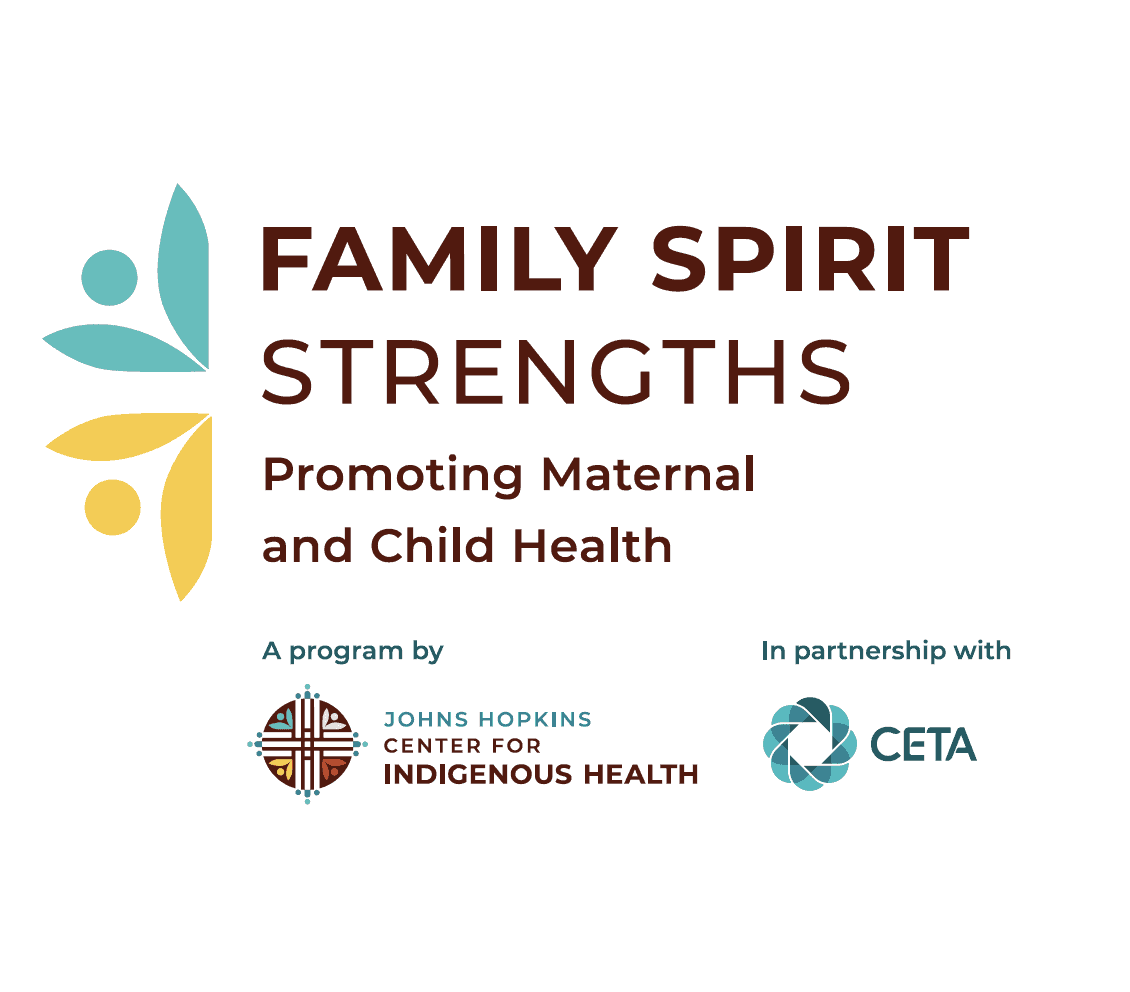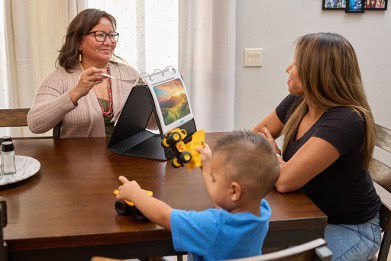
Background
Mental health and substance misuse pose some of the greatest risks to the health and well-being of American Indian and Alaska Native (AI/AN) communities and result in intergenerational morbidity and mortality. These risks are the legacy of historical trauma and ongoing discrimination. Simultaneously, many AI/AN communities emphasize a holistic view of well-being centered around family and community and prefer upstream preventative and family-based interventions with the potential to disrupt intergenerational cycles of trauma and adversity.

Our team of Indigenous and allied researchers has worked closely with participating communities to design and pilot the Family Spirit Strengths (FSS) intervention. FSS is designed to provide transdiagnostic skills-based preventive strategies to mothers and primary caregivers who are at elevated risk for mental health and substance use disorders. The FSS intervention has been co-developed with Indigenous health experts and leveraging the Common Elements Treatment Approach, an evidence-based, multi-problem intervention designed to promote mental health and reduce substance use. Family Spirit Strengths (FSS), is appropriate as a primary and secondary prevention strategy for people with low to moderate levels of symptoms.
Study Impact
We are conducting a Hybrid Type I Effectiveness-Implementation study with the primary goal of testing FSS effectiveness at reducing symptoms of depression, anxiety, and substance use, among N = 188 primary caregivers. Participants will be randomized to receive FSS or a beneficial control, an evidence-based nutritional support program called Family Spirit Nurture. Primary outcomes will be measured at 6 months post-enrollment. As part of our Hybrid approach, we will also estimate FSS costs, cost-effectiveness, and budget impact.
Who are our target participants?
For this study, we will aim to recruit pregnant mothers and primary caregivers of children ages 0-24 months who have elevated mental health symptoms. Our specific eligibility criteria include:
- Pregnant and/or primary caregiver of a child 24 months or younger
- Self-identify as female
- 14 years or older at the time of enrollment
- Report a family history of high-risk substance use
- Have elevated symptoms of depression and/or anxiety and/or risk of substance use disorder
- Be part of the service population of Shiprock,NM Service Unit or Chinle, AZ Service Unit orPokagon, MI Service Unit
What is the study timeline?
We will begin recruitment on April 1, 2023. The study has been approved by the Johns Hopkins Institutional Review Board and the Navajo Nation Human Research Review Board.
How will this benefit communities?
Study staff (home visitors) will ensure that mothers at risk for mental and emotional distress receive the additional resources they need. If proven effective, FSS may benefit caregivers in over 150 Family Spirit communities across the country and could be expanded to other home visiting programs to enhance impact.
Questions?
If you have are interested in learning more, please reach out to study co-PIs, Ms. Leonela Nelson: lnelso32@jhu.edu, or Dr. Emily Haroz: eharoz1@jhu.edu.